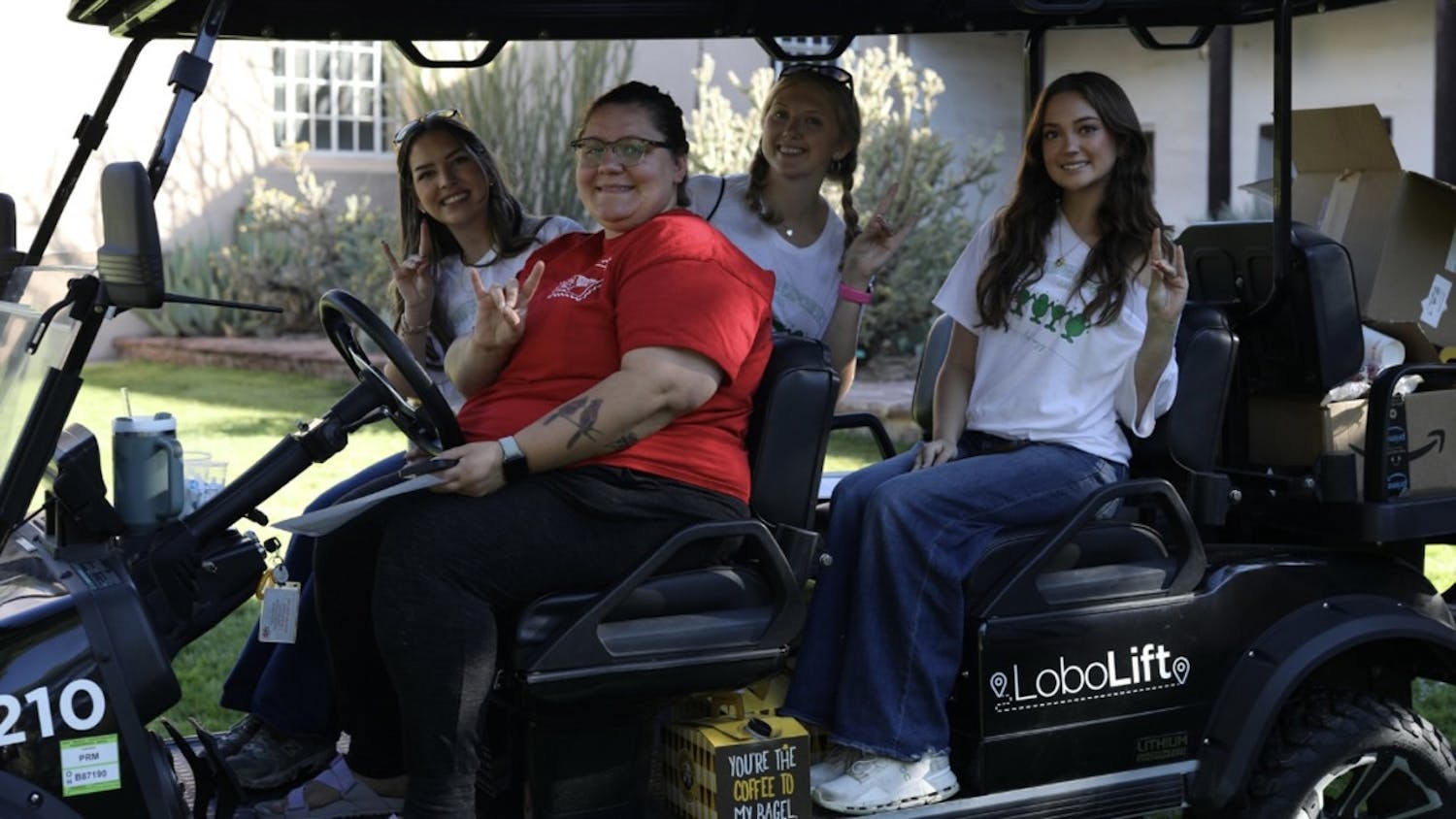The Pushkin State Language Institute signed an agreement with UNM’s Russian program on Tuesday, making UNM the second U.S. school to partner with the Institute.
The 50-year-old Institute is based in Moscow and focuses on teaching Russian as a foreign language.
Russian program director Tanya Ivanova-Sullivan said it first contacted UNM in September about creating an agreement, which is not a typical exchange program, but instead an academic exchange of educational materials and experience.
As part of the agreement, two professors visiting UNM from Pushkin taught an hour-long lecture in Russian on Wednesday and the school donated children’s textbooks to UNM, Ivanova-Sullivan said. UNM’s Russian program works with a local Russian school that teaches children Russian, especially heritage learners.
The Institute is also open to helping UNM build a testing center to evaluate Russian speakers’ proficiency, said Oleg Radchenko, a senior professor at the Institute. Students from other universities would be able to come to UNM to take the test.
Language department chair Pamela Cheek said completing such testing can help Russian language students with job opportunities.
“Many people will say that they’re fluent in another language, but that doesn’t necessarily mean conducting high level negotiations or representing a business, or an agency. So the testing is really key in terms of positioning our New Mexico students to be productive in the workforce,” Cheek said.
Radchenko said the main benefit for Pushkin is preserving Russian as a subject in U.S. universities.
“I believe that Russian as a world language has recently lost its radiance for students, and we observe it in many European countries for example, Russian programs are declining,” he said.
Pushkin, which began its partnership network in 2015 and is supported by the Russian Ministry of Education and Research, has partnerships with universities in Europe and Asia, Radchenko said. They will be signing a third partnership with a U.S. school soon, and hope to eventually add five U.S. universities to their network of partner schools.
UNM will be the center for the Institute’s outreach in the Southwest U.S. The Institute publishes a Russian Language Abroad Journal and he suggested that UNM could put together an issue around teaching Russian in New Mexico.
The ceremony included signing a bilingual Memorandum of Understanding that the Global Education Office helped draft, and the exchange of gifts.
Get content from The Daily Lobo delivered to your inbox
The Institute chose UNM for its enthusiasm, not the size of its Russian program, Radchenko said.
“The University of New Mexico is a power center, not only teaching Russian. There are many students and researchers who are really interested in Russia, not only the language but the culture also,” said Mikhail Osadchiy, Pushkin’s vice-rector for research.
Although the representatives had to fly 21 hours to reach Albuquerque, the biggest challenges in creating the agreement were fears on both sides about biases toward Russia’s current relationship with the U.S., Radchenko said.
“I was afraid that we would contact the University and we would hear, ‘oh no, Russia. Maybe next year’,” he said. “We found very open-minded people and this is a very important thing to do, because you cannot deal with people who are prejudiced or biased, or are afraid of you.”
Cheek said she hopes the agreement will shed light on the quality of UNM’s Russian program.
“I think one of the things that distinguishes our admittedly not enormous program is the extraordinary dedication of the faculty. Students get handholding and one-on-one attention from day one,” Cheek said.
After the ceremony, UNM Russian professors, Russian speaking community members and the director of the Russian school in Albuquerque all shared their experiences teaching Russian in New Mexico with the representatives from Pushkin.
A common theme was that motivating students to learn Russian is a challenge, which the teachers combat by creating a sense of community in their classrooms.
UNM student Brian Stinar said having a testing center for Russian proficiency available at UNM would help him.
“I’ve looked at some of the Visa applications and they have a box where you can put in your proficiency level and you can’t just make that up. So, for visa purposes that would be helpful,” he said.
Siani Winslow, a former nursing student turned Russian major, said she is excited about the agreement.
“I feel like there can be a lot of stereotypes and lack of understanding whenever it comes to other countries and their languages,” she said.
On Wednesday the program also hosted a celebration of the Pushkin representatives’ visit, which included UNM students singing and reading poetry in Russian.
“We see it as a very important program to build bridges between our countries in a time where politics is not that sufficient, is not that helpful — we try to do the job for the politicians,” Radchenko said.
Cathy Cook is a news reporter at the Daily Lobo. She can be reached at news@dailylobo.com or on Twitter @Cathy_Daily.






